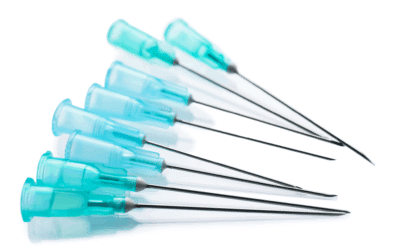
I’m sure many of us are guilty of indulging in one too many coffee, tea, or energy drinks as a crutch to get through a long day of work or home life. “Don’t talk to me until I’ve had my coffee” is a commonly heard phrase in the workplace and it’s easier than ever to stop by Starbucks while running errands. While a fresh, hot cup of joe in the morning can really hit the spot for some – for others it sends them spiraling into an all day headache. Why is that?
Caffeine is a chemical stimulant that has vasoconstrictive properties, which means that it causes blood vessels narrow in order to restrict blood flow. During a headache, blood vessels swell and tighten, which causes an increase in blood flow around the brain and puts pressure on the surrounding nerves. This process sends pain messages to the brain, thus bringing on the headache. Because caffeine restricts that blood flow around the brain, drinking coffee or tea can alleviate the headache symptoms we experience as a result of the pressure on our nerves. In addition, when caffeine is taken in combination with medicines such as aspirin, ibuprofen or acetaminophen, it can increase the absorption of the medication to provide faster relief.
This all seems like a great solution to headache pain, but the cycle of caffeine use can be a slippery slope for many patients. Overuse of caffeine can actually lead to caffeine dependence, where the body relies on the effects of caffeine to narrow the blood vessels that surround the brain. In those cases, when consumption is stopped the blood vessels enlarge again and begin to pressure the surrounding nerves. This can then trigger a caffeine withdrawal headache. Withdrawal headaches often stick around for weeks at a time because it takes the body a while to adjust to not having regular caffeine intake. In addition, caffeine is a mild diuretic and can increase your need for urination – dehydrating you over time and causing increased headache symptoms.
While caffeine is not always bad in every patient’s situation, it is important to monitor your caffeine intake and be aware of the effects it has on your headache and migraine symptoms. If you suspect that caffeine is triggering your headaches, it’s best to cut down on caffeine slowly and see how it affects you. If you want to reduce your caffeine intake without experiencing serious withdrawal symptoms, it is best to cut down on caffeine gradually instead of cutting it out altogether. The American Migraine Foundation recommends that you reduce your caffeine intake by 25 percent every week until you cut it out completely. For more information on this topic, check out our ,podcast episode on caffeine,!
At Novera: Headache Center, we empower our patients to identify triggers in their day-to-day lives and formulate a plan to manage symptoms in a way that is approachable and effective. Schedule a Free Discovery Visit today to learn more about how we can help.




